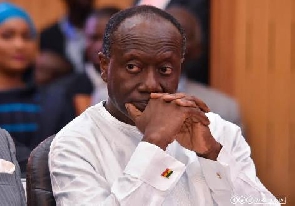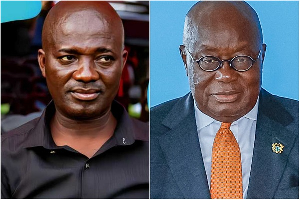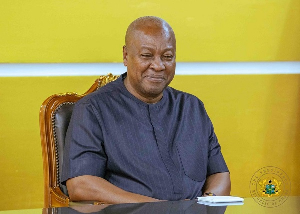GHANA’S major development partner, the International Monetary Fund (IMF) says it is unaware of government’s decision to push for an extension of the bailout programme.
“We are not aware of the authorities’ decision to seek an extension to the on-going IMF-supported ECF programme,” an IMF spokesperson told this paper in an email communication.
The Fund however added that any request for an extension could be considered “if the authorities request it to achieve the country's economic objectives.”
The new Ghanaian government, utterly dissatisfied with the economic mess announced major changes in its first budget statement and indicated that it would seek an extension to the country’s three-year programme with the Bretton Woods institution.
Following that announcement, some analysts, labour, business and civil society groups have either called for outright discontinuation of the programme or full disclosure of the details of the planned extension.
The Fund disclosed that its mission to Accra will be in April and “we expect to hold discussions under the Article IV consultation and do a review.”
“The mission aims to assess programme performance as of end-June 2016 and revise macroeconomic projections for 2017 and the medium-term,” the spokesperson added.
The Fund early this year, welcomed government’s decision to continue implementing the programme, indicating that it would be ready to hold discussions on the status of the programme during the next mission.
The third programme review was completed at end-September 2016 and “we are planning to initiate the fourth review during the mission in April. The Spokesperson admitted that the implementation of the programme weakened last year, notably due to a significant fiscal slippage, with the budget deficit reaching 8¾ percent of GDP in 2016, significantly exceeding the deficit of 5¼ percent of GDP that we projected in September.
“Going forward, this means that stronger efforts will be required to achieve the targeted fiscal consolidation,” the Fund stated.
The programme was instrumental for reducing major macroeconomic imbalances and engendering confidence in the economy. Among others, the fiscal deficit declined from 10 per cent of GDP in 2014 to 7 per cent of GDP in 2015. This helped stabilize the exchange rate and reduce interest rates on government debt. Inflation has also started to come down.
Business News of Friday, 31 March 2017
Source: thefinderonline.com
We’re not aware of push for extension – IMF
Entertainment












